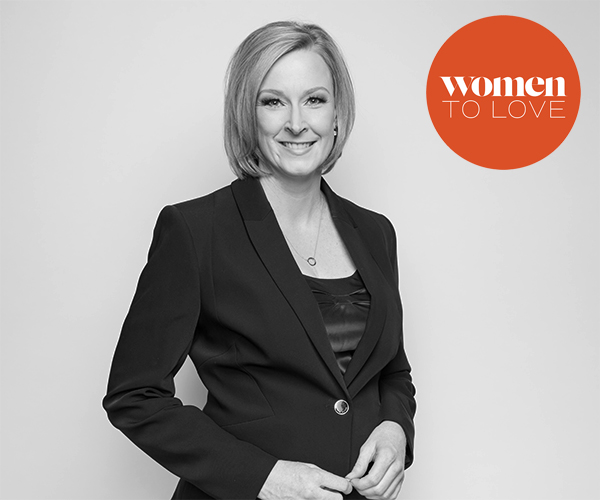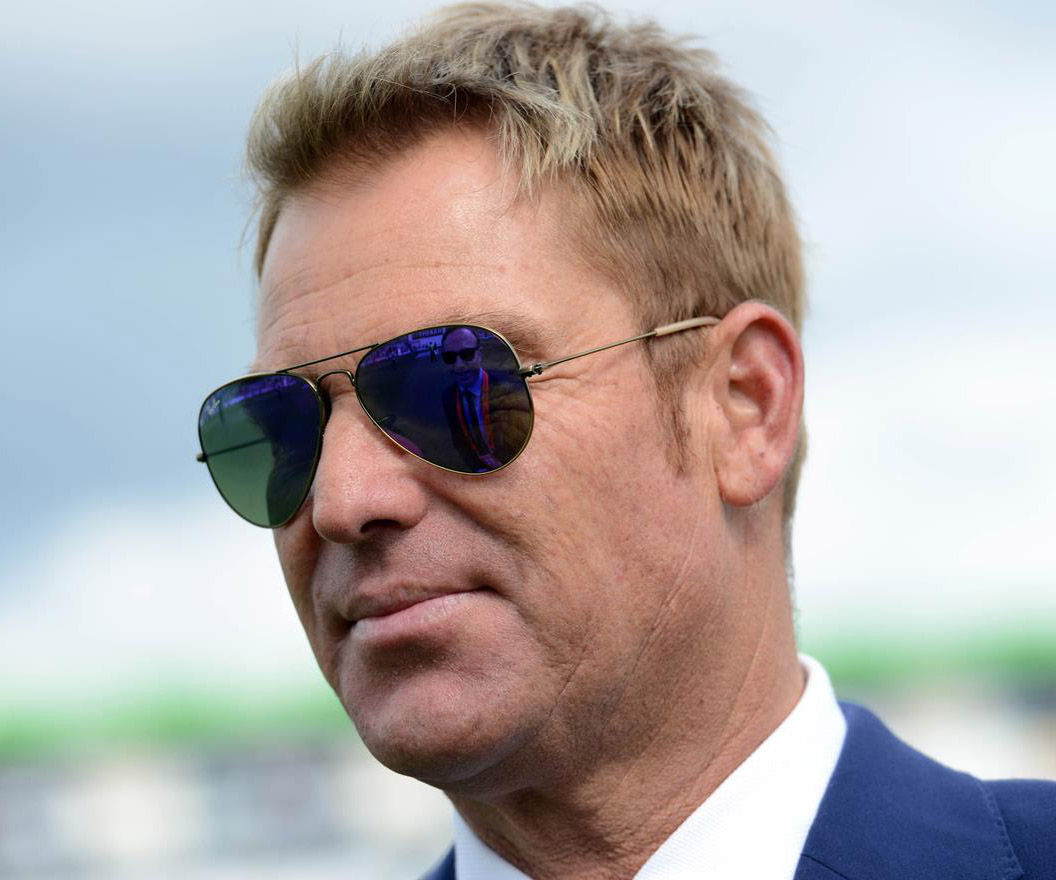We all know Leigh Sales as the straight-talking ABC journalist with the undesirable job of trying to get a politician to actually answer one question they’re asked.
As with most women on television, she’s regularly inundated with a river of disgusting, sexist and relentless abuse. She’s told audiences that after interviews she’s been described as an obviously biased left-wing stooge while simultaneously accused of sleeping with the guest because she obviously likes them so much.
Charming.
While she’s the high-flying 7.30 host these days, she was initially discouraged from embarking on a broadcast career.
“I was working at Channel Nine when I was in my early 20s and I was pulled aside by a boss who told me I didn’t have the looks or voice to be on TV,” Leigh told an audience at The Remarkable Woman’s International Women’s Day breakfast.
“So I moved to the ABC, because they’ll take any old bag,” she laughed. “Every night that guy gets a little wink.”
Now the veteran reporter has two Walkley Awards, fronts a flagship show, hosts a podcast with friend and fellow journalist Annabel Crabb and has written two books with another on the way – looks like the guy deserves more than a facetious wink.
We caught up with Leigh as she shed some light on career regrets, sexism at work and how journalism could benefit from more class diversity.
Have you made any mistakes during your career/is there anything you would’ve done differently?
Oh god yes, all the time. They range from little moments like thinking “Oh I should have phrased that question differently” to bigger things like “I didn’t treat that person well enough”.
Regarding things I would do differently, I’m not sure how I would change it but I feel I don’t get enough time any more with my colleagues. There are some fantastic people who work on 7.30 and because I have small children, I rarely have the chance to go to the pub with them or hang out and get to know them better.
I talk to them at work and admire their work but the chances for personal time are too scarce. It makes me worry that I don’t look after the people on the team enough. For some of them, I don’t feel like I know their personal goals and challenges.
How should your industry adapt and change?
I think it’s good that people are talking about diversity and I would like to see that include class diversity.
I meet a heck of a lot of journos who’ve gone to top public schools and universities and not that many who didn’t.
A few decades ago, people could get into journalism without a degree, it was a trade. How can a journalist truly understand what it’s like to be on welfare or living hand-to-mouth if mum was a doctor and dad was a lawyer?
We all have the human capacity for empathy of course and part of the job of being a journalist is to go and investigate and find out about other people’s experiences. But if the industry focuses on racial and gender diversity without addressing class, we’re only part of the way there.
Have you noticed sexist microaggressions within your industry?
The main thing is in the anonymous social media feedback. Barely a day would pass when I don’t get somebody giving me some sort of disgusting, offensive sexual insult.
Have you made any mistakes during your career/is there anything you would’ve done differently?
You know, I feel bad saying this because I have heard the stories of so many of my female colleagues and the sexual harassment and abuse they get and honestly, I have been so fortunate because I really can’t think of any overt sexism I’ve experienced in the workplace.
I don’t know if I’m naïve and don’t see it or if I have been lucky. I’ve had some unbelievably fantastic, decent male bosses and tonnes of male colleagues like that too.
I can only remember one incident off the top of my head, which was a bit of a handsy cameraman trying to cop a feel one day when he clipped on a lapel mic and I barked in his face, “Are you RIGHT?” And he never tried it again.
What have you been most proud of during your career/have there been any pivotal/lightbulb-esque moments?
I am really proud that I have made wonderful relationships with many people with whom I’ve worked. I think of my very dear friend, Lisa Millar, the ABC’s London Correspondent and Louie Eroglu, cameraman at Four Corners, and Justin Stevens, who’s Executive Producer now at 7.30.
They are all so talented and amazing and I can’t believe how lucky I am that I’ve had the opportunity to work with them and that they’re become my great friends.
When it comes to light bulb moments, I think I had one in around 2000, when I left a job I really loved (as NSW Political Reporter) and shifted into a different job in the newsroom.
I did it because I was in a hurry to tick some boxes to give me the right experience to apply to become Washington Correspondent. But when I shifted to the new job, I really missed the old one and I realised that I didn’t appreciate while I was doing it how fun it was and how much I liked the people I was working with at Parliament House.
It taught me to be in the moment a bit more.
What advice would you give your 13-year-old self and what advice do you have for young women getting into your industry?
I think what I just said: Enjoy what you are doing in the moment. The journey is long so you can’t always be focused on the destination, you have to enjoy the journey itself (sorry to sound like a wanker).
For young women, I’d say try to work with people whom you admire and from whom you can learn. And be open to learning. You only realise later how much you didn’t know.
Who’s been your biggest champion/mentor and why?
My mother is definitely my biggest champion, she’s always very supportive. I wouldn’t necessarily use the word “mentors” but over the years I’ve admired and been influenced by some wonderful Australian journalists: Pamela Williams, Marian Wilkinson, Peter Hartcher, Chris Uhlmann, John Cameron spring to mind.
I’ve been so fortunate that all those people have been friends and I’ve been able to learn a lot from them too.

